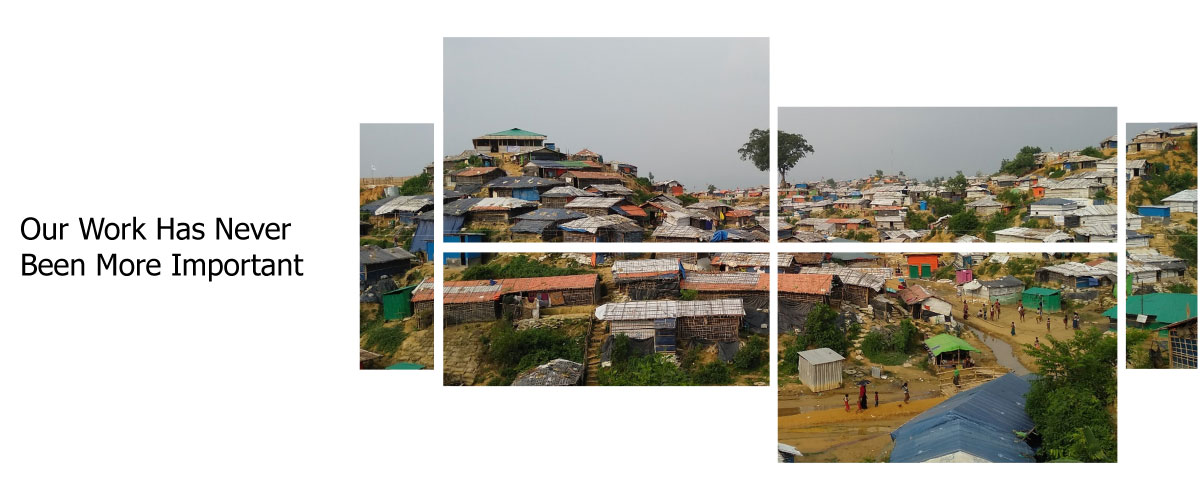As the world confronts the effects of climate change, we are increasingly seeing the emergence of new diseases and the resurgence of old ones. According to some estimates, there is more than a one in four chance of another global pandemic in the next decade. The World Health Organization calls this unknown threat ‘Disease X’.
One of the lessons of the COVID-19 pandemic is that policymakers or scientists alone cannot combat a worldwide public health emergency. Tackling pandemics requires a ‘whole of society’ approach.
Faith leaders can play an essential role in health emergencies as community influencers and ‘information intermediaries’. Engaging these leaders is important as they can mobilize the community, build trust and combat misinformation and stigma. . The COVID-19 pandemic led to a renewed emphasis on the public’s health and hygiene behavior. Faith communities were thrust into the spotlight as controversies erupted over ‘super-spreader events’ and ‘vaccine hesitancy’.
For countries in the Global South, such as Bangladesh, limited healthcare resources and weak infrastructure meant a heavy reliance on changing individual and community behavior to prevent the spread of COVID-19. The United Nations has repeatedly urged governments to make Risk Communication and Community Engagement (RCCE) one of the key pillars of their public health response.
Shortly after the COVID-19 pandemic abated, Bangladesh was struck by deadly waves of dengue fever, which have killed more than 1,200 people so far. Once again, the influx of patients has strained the country’s healthcare system and placed a renewed focus on the lessons learned from the COVID-19 response.
Center for Communication Action Bangladesh (C-CAB) carried out a knowledge, attitudes, and practices (KAP) study to better understand knowledge gaps, cultural beliefs, and behavioral patterns among faith leaders in five administrative divisions of Bangladesh – Dhaka, Chittagong, Khulna, Sylhet, and Rajshahi.
The study examined faith leaders’ perceptions of infectious diseases like COVID-19 and sought to identify practices that might help or hinder efforts to contain an outbreak. It also looked into attitudes towards vaccines and public health restrictions such as limiting religious events. In addition, the research explored the respondents’ own understanding of the role faith leaders can play in a public health response.
The results showed that overall, the majority of faith leaders were well-informed about the basics of the COVID-19 pandemic, in line with government advice and scientific consensus. However, the research also uncovered significant knowledge gaps and superstitious attitudes that could complicate a health response.
The majority (81%) of respondents say they believe in human-to-human transmission of Covid-19 while 96% indicate they recommend vaccination; 87% say they took the vaccine themselves. However, at the same time, 62% of faith leaders believe Covid-19 is ‘God’s punishment’. This could hark back to a belief held in the community that the disease commonly affects ’sinners’.
Most faith leaders (65%) believe there are alternative treatments for Covid-19, such as hot water (40%), antibiotics (22%) or traditional medicine (20%). Nearly a fifth (19%) of religious leaders say they do not believe in the concept of infectious disease altogether.
Approximately 40% of respondents said they would agree with a policy of closing places of worship to control infections. At the same time, 86% of religious leaders say they believe masks should be worn for religious ceremonies during an outbreak. However, only 26% said they wore masks regularly to avoid transmission.
Older religious leaders (70+) appeared to be less well-informed than younger ones. Older leaders were less likely to say they heard about the Omicron variant of the coronavirus. Older leaders also were significantly less likely to agree to the closure of places of worship to contain an outbreak.
Faith leaders appeared keen to be involved in community-based health activity, with 94% of respondents saying faith leaders have an important role to play in a public health response.
However, just 32% said they had been reached out to by a government agency to contribute meaningfully to the COVID-19 response, underscoring that there is a significant opportunity to engage faith leaders in future public health responses.
This KAP study among the faith leaders of Bangladesh provides important clues about the information ecosystem, which is key to the preparation and dissemination of prevention messages.
The results provide important pointers for future interventions and opportunities to fill existing gaps in health management and collaboration between key players.
More robust social and behavior change interventions are needed if we want to be better prepared for future public health challenges.
Possible recommendations to be considered for future public health responses are:
- Engage, mobilize and train faith leaders as community influencers and conduits of information.
- Religious leaders can support and coordinate awareness campaigns and mobilise communities for preventive behaviours and vaccination.
- Empower faith leaders to maintain healthy and preventive behaviours in their places of worship.
- Train faith leaders to combat stigma and counter misinformation.
- Engage faith leaders as counsellors to provide psychosocial support.
- Specific cultural or religious beliefs that are not aligned with health protocols need to be appropriately clarified. In this type of sensitive work, utilizing existing networks of faith-based organizations to engage faith leaders could help address the issue.
- Faith leaders should be engaged as representatives in their community capable of sharing health information. This will allow health authorities to reach remote and marginalized areas.
- Provide support for compliance with health protocols during religious ceremonies and/or at places of worship.



